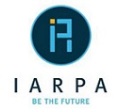IARPA looks for artificial intelligence training resources
 On February 12, the Intelligence Advanced Research Projects Activity posted a request for information (RFI) for novel training datasets and environments to advance artificial intelligence (Solicitation Number: IARPA-RFI-16-03). Responses to this RFI are due no later than 5:00pm Eastern Time on Friday, April 1, 2016.
On February 12, the Intelligence Advanced Research Projects Activity posted a request for information (RFI) for novel training datasets and environments to advance artificial intelligence (Solicitation Number: IARPA-RFI-16-03). Responses to this RFI are due no later than 5:00pm Eastern Time on Friday, April 1, 2016.
The Intelligence Advanced Research Projects Activity (IARPA) is seeking information on novel training datasets and environments to advance artificial intelligence (AI). This request for information (RFI) is issued solely for information gathering purposes; the RFI does not constitute a formal solicitation for proposals. IARPA anticipates that responses to this RFI will be used to inform future funding opportunities for creating novel training resources for artificial intelligence algorithms. The following sections of this announcement contain details of the scope of technical efforts of interest, along with instructions for the submission of responses.
Artificial intelligence, defined here as computer simulation of cognitive processes such as perception, recognition, reasoning, and control, have captured the public’s imagination for over 60 years. However, artificial intelligence research has proceeded in fits and starts over much of that time, as the field repeats a boom/bust cycle characterized by promising bursts of progress followed by inflated expectations and finally disillusionment, leading to what has become known as an “AI winter” – a long period of diminished research and funding activity. Until recently, the conventional wisdom has been that new algorithms were the limiting factor in making steady progress towards artificial intelligence. However, recent advances in machine learning, a sub-field of artificial intelligence, have established that historical algorithms (e.g. backpropagation) in conjunction with high-performance computers can be used to achieve nearly human-level performance on diverse tasks such as image and speech recognition, language translation, and video game play.
In each of these instances, and in many others, rapid progress was facilitated by the availability of massive amounts of training data well-suited to the problem under study. This realization raises the prospect that many additional artificial intelligence problems may be solvable in the near-term, without significant innovations in the underlying algorithms, if the right training resources become widely available.
Training resources for algorithms such as discriminative classifiers and generative models typically require a large collection of static labeled samples, each of which is represented as an (input, output) pair. For example, training data for an object recognition algorithm might consist of a set of images of objects or scenes, each of which is accompanied by a textual description of the object type(s) contained therein. In contrast, training resources for reinforcement learning algorithms typically provide a dynamic interactive environment for a simulated agent and supply evaluative feedback based on the agent’s actions. Examples include simulators such as MuJoCo and the Arcade Learning Environment.
Through this RFI, IARPA is seeking input from the artificial intelligence research community on training resources that, if created, would be most likely to drive progress in new problem domains within the field of artificial intelligence (including machine learning).
Full information is available here.
Source: FedBizOpps








